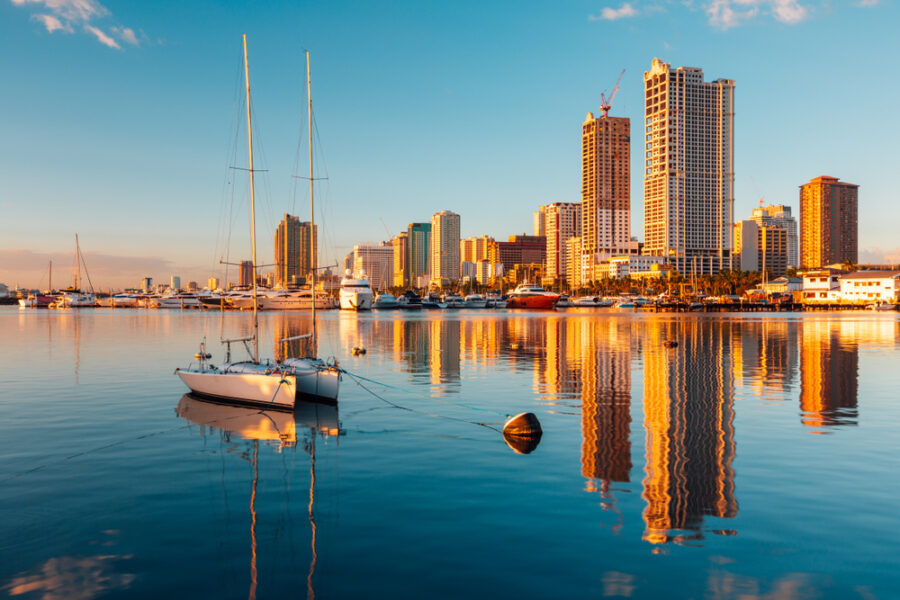Philippine Finance Secretary favors regulation over online gambling ban

Philippine Finance Secretary Ralph G. Recto has said he is against a total ban on online gambling, explaining that the gambling sector can generate net economic benefits if it is properly regulated and if social harms are effectively managed.
In an interview with BusinessWorld, Recto said the Department of Finance wants to see tighter regulation of the sector, but not an outright ban.
“[The DoF’s position] is based on our cost-benefit analysis that shows that the industry can have a net benefit impact on the economy if certain negative externalities are controlled through more stringent regulations,” he said.
Recto’s comments followed the Department of Economy, Planning, and Development’s proposal of stricter rules, including a possible online gambling ban, which set the sector’s 0.37% contribution to GDP in 2023.
The Philippine regulator, PAGCOR, also told BusinessWorld it doesn’t favor a total ban, and prefers regulation for the gaming industry, reporting that it collected PHP37 billion (US$628 million)1 PHP = 0.0170 USD
2025-11-06Powered by CMG CurrenShift ($628.3 million) from online gambling platforms in the first seven months of 2025.
PAGCOR recently announced a 49% increase in net income from January to September this year.
Philippine lawmakers are currently debating proposals to either ban or tighten the regulation of online gambling, with a bill expected to be introduced by the end of the year. However, analysts have warned that policy delays could embolden illegal operators and exacerbate social harm.
Verticals:
Sectors:
Topics:
Dig Deeper
The Backstory
Why regulation, not prohibition, is back on the table
Debate over online gambling in the Philippines has intensified this year as economic agencies, lawmakers and the presidential palace examine how to curb social harms without fueling a black market. The Department of Finance has been central to that push, advancing a cost-benefit view that the industry can yield net gains if guardrails tighten. That position has collided with mounting political pressure for tougher measures after reports of addiction, youth access and offshore rackets.
The presidency has signaled it is weighing a sweeping response. In midyear briefings, Malacañang said President Ferdinand Marcos Jr. was considering a total ban, while also studying stricter taxes and regulatory tools. The administration framed the choice as a balance between curbing illegal operations and protecting economic activity. As the palace described it, banning legal sites can sometimes push players to underground operators that are harder to police. That dilemma was laid out when Marcos weighed a total online gambling ban amid a broader enforcement campaign.
The policy split has galvanized Congress. A Senate panel began hearings to test whether a ban would reduce harm or simply shift it. Committee leaders called the issue urgent, citing reports of minors’ access and rising household debt. The chamber scheduled testimony from regulators and fiscal officials to assess tradeoffs across four bills and three resolutions. As the inquiry got underway, the Senate committee on games and amusement opened an online gambling probe.
Industry leaders have tried to channel that energy toward stricter, enforceable rules rather than prohibition. A major local operator argued that robust compliance programs can protect players and keep jobs in the formal economy. The operator’s stance underscored a tactical divide: codify the controls that already exist on licensed platforms or risk pushing activity to unlicensed sites. That case grew louder after DigiPlus backed stronger regulation while warning a blanket ban would push gamblers to unregulated platforms.
How enforcement steps exposed the gray zones
As policymakers argued, regulators tightened rules. The gambling regulator barred billboard ads and limited TV promotion in primetime, moves meant to reduce impulse play and youth exposure. The measures mirrored efforts in other markets to constrict the marketing funnel while allowing licensed operators to function under stricter supervision. The presidency highlighted those actions as evidence that a crackdown was underway even without a ban, as described when the palace flagged advertising curbs imposed by the regulator.
Payments became the next frontier. The central bank ordered e-wallet providers on Aug. 14, 2025 to delink gambling access from in-app features. Two of the largest wallets, Maya and GCash, confirmed compliance by Aug. 16. The Senate’s games and amusement chair praised the move as a way to cut friction that made betting easy and constant. But the enforcement wave also exposed how resilient the market can be. Within days, operators moved traffic to alternative channels, including messaging apps and other payment rails. The pivot was documented as operators shifted to alternative payment channels after e-wallet delinks.
Authorities stepped up takedowns in parallel. The Cybercrime Investigation and Coordinating Center reported the removal of 8,901 illegal sites, yet nearly 12,000 were believed to persist, including thousands of online casinos and cockfighting platforms. That gap reinforced warnings that blunt instruments can scatter activity without eliminating it, complicating oversight and tax collection. The friction between formal clampdowns and informal workarounds has shaped the cabinet’s cost-benefit calculus and fueled the Senate’s questioning about what tools actually reduce harm.
The fiscal lens: benefits, costs and safeguards
Finance officials have pressed for guardrails that borrow from public health playbooks. In House testimony, the department urged graphic warnings on gambling’s addictive risks, stricter age checks, limits on betting frequency and a rehabilitation fund. The pitch framed online play as a product that warrants the same caution as other addictive goods. The department’s report weighed taxes, franchise fees and jobs against household debt and treatment costs, aiming to quantify net effects. The lens broadened once the Department of Finance called for graphic health warnings, tighter age checks and a rehab fund.
Not all economic agencies agree on the balance. The Department of Economy, Planning, and Development has argued the sector’s share of GDP, pegged at 0.37% in 2023, is too small to offset social costs. That stance keeps the option of a ban on the table even as regulators prefer a targeted clampdown. The split reflects broader debates over how to value harms that are diffuse and long term compared with revenues that are immediate and measurable.
For the regulator, the numbers reinforce a different case: licensed activity yields tangible revenues the state can deploy to fund enforcement and treatment. Officials have cited rising income and collections from regulated platforms to argue for tightening the legal perimeter rather than erasing it. The fiscal tradeoffs remain central as lawmakers draft bills and the palace canvasses stakeholders, including the Catholic Bishops’ Conference of the Philippines, which opposes gambling.
Industry positioning and labor stakes
Operators have tried to show they can meet higher standards. A leading platform said it already deploys know-your-customer checks, deposit limits, cooling-off periods and self-exclusion tools. It also moved to comply with new ad restrictions, including billboard bans. The company framed regulation as the only viable path to protect players, preserve formal employment and close the door on illicit competitors. That message sharpened as DigiPlus endorsed stricter rules while cautioning that a ban could imperil 40,000 jobs.
Critics counter that voluntary controls are uneven and easy to evade. The swift migration to alternative payment channels after the e-wallet delinks underscored how quickly players can sidestep new rules. That agility has fueled calls for coordinated enforcement across regulators, platforms and payment firms, along with penalties that make noncompliance costlier than compliance. The Senate’s hearings have spotlighted these gaps as legislators test whether the current tool kit can constrain a digital market that adapts in days.
Labor considerations add urgency. Formal operators support thousands of direct and indirect jobs, from customer service to compliance and tech. A ban could put many of those roles at risk, while a poorly enforced regime could still leave workers exposed if legal businesses lose share to offshore rivals. Policymakers face a familiar choice: channel activity into regulated firms with auditable systems, or attempt to suppress it and risk a shadow economy.
What to watch as bills advance
The next steps pivot on legislative design and enforcement capacity. Senators have signaled they will weigh age verification mandates, ad and sponsorship limits, deposit and time caps, payment controls and exclusion schemes. A decision to impose health warnings would mark a public health turn, aligning gambling with other regulated risk products. The chamber is also expected to probe how to sustain takedowns of illegal sites and extend oversight to payment networks and messaging platforms, building on findings from the e-wallet delinking and operator workarounds.
The palace is likely to keep the ban option in reserve while testing whether tougher rules can deliver measurable harm reduction and revenue stability. That calculus will track data points such as illegal site counts, ad exposure, payment funnel friction, regulator collections and treatment uptake if a rehab fund is created. It will also depend on coordination among the regulator, the central bank and law enforcement, a theme that surfaced when the Senate began its probe into online gambling bills.
The stakes are significant. A blanket ban could reorder the market overnight but risks driving play to unlicensed operators. Incremental regulation could preserve formal revenues and jobs, but only if enforcement keeps pace with digital evasion. The choice now before lawmakers and the president is whether the country can build a regulatory regime nimble enough to police a fast-moving industry or whether prohibition is the only practical path.






